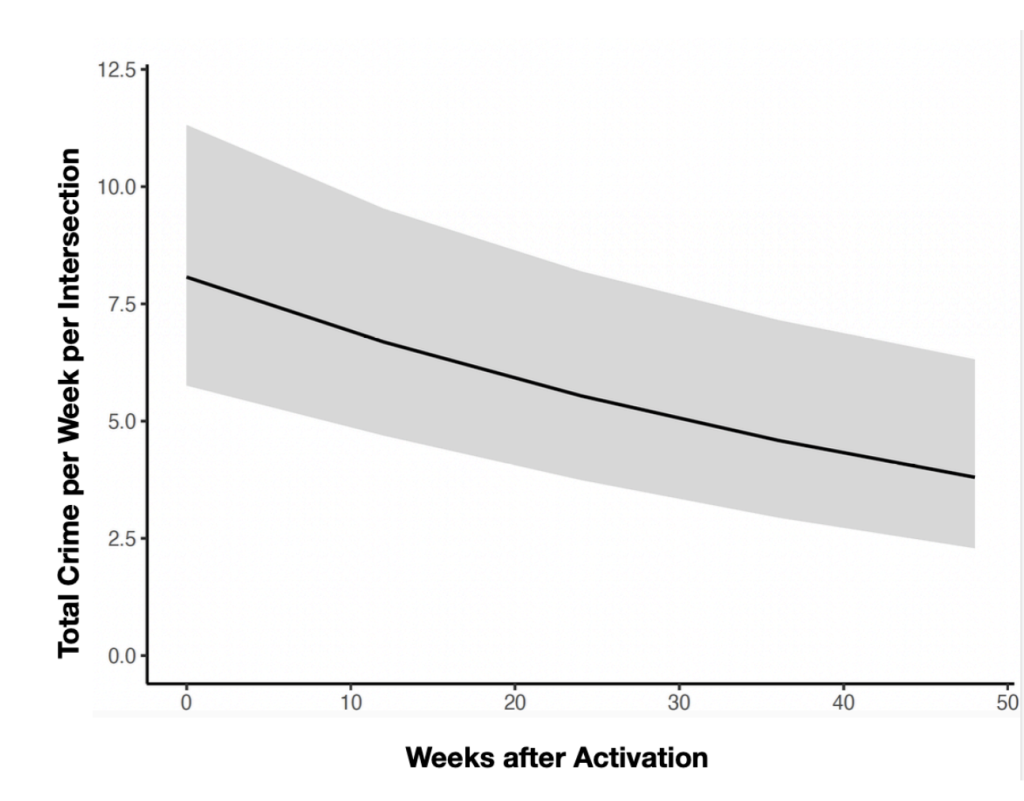Data Analysis Proves Innovative Ambassadors Program Contributes to Safer City Streets
FOR IMMEDIATE RELEASE:
January 4, 2024
SAN FRANCISCO – Mayor London Breed, Urban Alchemy, Stanford researchers and community members celebrated the drop in crime in the Urban-Alchemy-served neighborhoods of San Francisco, which was showcased in the results of a new Stanford University study.
Urban Alchemy’s Ambassadors program – the subject of the research – is an innovative intervention to reduce crime and homelessness operating in the Tenderloin, Mid-Market and Civic Center neighborhoods. The program places high numbers of Urban Alchemy practitioners with lived experience and trauma-informed conflict de-escalation training on some of the neighborhood’s most problematic blocks to help mitigate conflict, keep streets and sidewalks clean and passable, and connect homeless San Franciscans to housing and services. More than 90% of Urban Alchemy’s practitioners are formerly long-term incarcerated and/or have experienced homelessness themselves.
“We know the work happening every day in the Tenderloin neighborhood can’t be done without key partners like Urban Alchemy,” said Mayor London Breed. “UA works alongside our law enforcement agencies, city departments and other community organizations to make our city safer and more welcoming for people to live, work and visit. This research by Stanford highlights how our efforts are making a difference and that we can build on this work. UA does more than help advance San Francisco’s public safety priorities – they’re investing directly back by creating jobs in the communities served.”
After analyzing all 40 intersections served by Urban Alchemy, part of the Mid-Market Foundation-managed Community Based Safety Program, findings confirmed the non-profit has caused a significant reduction in total crime, and the rates continue to decrease the longer Urban Alchemy is in place. The study compared crime levels from 12 months before to 12 months after the activation of each intersection, during the non-profit’s hours of operation, roughly 7 a.m. to 7 p.m.
Crime rates at Urban Alchemy-served intersections dropped by 52% over the course of the year. Drug crime rates dropped by 80%. The study controlled for the possibility of the crime simply shifting elsewhere and concluded it did not.
Average total crimes per week, per intersection:
- At activation: 8.07 crimes
- At 3 months: 6.69 crimes
- At 6 months 5.54 crimes
- At 9 months: 4.59 crimes
- At 12 months: 3.80 crimes

“The research indicates Urban Alchemy’s model is an effective approach to community-based public safety,” said Dr. Forrest Stuart, Professor of Sociology at Stanford University and one of the primary researchers involved in the study, which has not yet been published or peer reviewed. “As cities throughout the United States grapple with homelessness and crime, we need innovative solutions to these overwhelming challenges.”
Dr. Stuart is the Director of the Stanford Ethnography Lab. His primary area of expertise is contemporary urban poverty, which led him to Urban Alchemy’s work in the Tenderloin. He chose to study the effects of Urban Alchemy after personal experience visiting the Tenderloin neighborhood in San Francisco, though he and his team are conducting similar research in other areas, with a heightened focus on Seattle. In addition to the Ambassadors program, Urban Alchemy also operates a civilian first responder program known as HEART that deploys teams to unhoused people seeking shelter, substance abuse recovery, and mental health services in response to non-urgent 911 and 311 calls. In the program’s first three months, Urban Alchemy resolved more than 1,200 incidents.
“Urban Alchemy has a vision: Clean, safe, housed communities that are welcoming to everyone,” said Dr. Lena Miller, the CEO and co-founder of Urban Alchemy. “As this study shows, the lived experiences of our practitioners – mostly the formerly incarcerated and others who can empathize with the homeless– give them skills and emotional intelligence that enables them to transform communities.”
Urban Alchemy looks forward to continuing its work with the City of San Francisco and other communities throughout the nation to give new hope to people and communities in crisis.
About Urban Alchemy
Founded in 2018, Urban Alchemy brings a fresh approach to the problems of homelessness, crime, and challenging street conditions faced by communities throughout the nation. Currently operating in and around San Francisco, Los Angeles, Portland, and Austin, Urban Alchemy’s unique approach provides meaningful, well-paid jobs to the formerly incarcerated. These Practitioners leverage their emotional intelligence and leadership skills to empathize and
de-escalate, helping create safe communities, clean communities, and housed communities.
About The Stanford Ethnography Lab
Founded in 2019, the Stanford Ethnography Lab serves as a hub for fieldwork-based research, training, and community interventions at Stanford University. The Lab seeks to amplify the impact of researchers committed to up-close, time-intensive studies that elevate the perspectives and experiences of community members. The teams work in a range of fields, including public safety, technology, education, and urban well-being.
